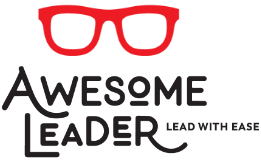We’ve all been there: dealing with the one person at work we just can’t get along with. No matter what we do and say, things don’t get easier. This person just seems different in every way from you. Their personality, wow, you simply don’t get them, and they probably don’t get you either.
If you don’t work directly together or interact often, it’s not a big deal. So as long as you avoid each other, you can usually keep the peace fairly easily.
But what about when that’s not an option? What about when it’s someone you do work directly with—such as a peer?
You need to deal with it. And that doesn’t mean planting seeds in that person’s head for a possible transfer or forwarding their LinkedIn profile to recruiters at other companies.
Depending on how overt these battles are, they can quickly drag everyone’s productivity—yours, your peers, and the team you are both part of.
It’s unlikely that your reputation and potential promotions and raises will suffer because there’s someone on the team you don’t enjoy working with. But those things will suffer if you handle the situation incorrectly.
And you have to handle it. Ignoring the challenge won’t make it go away. You won’t do yourself, your team, or the company any favors by burying your head in the sand and hoping you and this other person begin, magically, to get along one day.
Before you throw in the towel, or worse, start throwing punches, follow these best practices to deal with a personality clash.
#1 Own It
I hate to be the one to break it to you, but this conflict is not 100% the fault of your irritating coworker. I’m guessing this person finds you just as annoying as you find them.
So, stop playing the blame game. Blaming the other person for the clash is an excuse for choosing not to address the conflict.
Your goal isn’t to fix someone or to coach someone so their behaviors become more similar to your own. The goal is to recognize the differences and call out the behaviors you express that add fuel to the fire. Acknowledge that it’s your reaction that needs to change—not the other person’s personality
Take ownership for being part of the problem and part of the solution.
#2 Stop Gossiping
Gossiping to your other coworkers about this person makes it worse. If you have 1 really good, trusted friend at work, sure, you can whine to that person over margaritas after work. But telling everyone else at work just how awful this other person is and exactly why you can’t stand working with them will make you look like a petty jerk. You won’t win anyone over to your side, and people may begin to see you as someone they can’t trust you to keep private issues private.
#3 Don’t Respond Immediately
How many times have you thought of the perfect comeback 15 minutes after you walked away from a situation? The perfect comeback comes to you later for a reason: don’t respond immediately.
Once you’ve stepped back from a situation and had a few minutes to cool down and think the issue through, you’ll be in a better place to respond, and you’ll have a better and more reasoned response than whatever throwaway line you came up with in the heat of the moment.
Step back. Take a breath. Think about what has been said and what words you can use to best express your intentions and what they mean to your work and team goals. Then respond.
#4 Use the First Person: I vs. You
Once you’ve taken that step back and that deep breath, speak in the first person. Start with your thoughts. “I feel” vs. “You are.”
Descriptive statements that start with “you are” feel accusatory. It’s likely the other person will instantly become defensive.
Remember tip #1: take ownership of your part of this. You can only speak for yourself and your own feelings. You can’t assume what they are feeling, nor can you claim to speak for them.
So, when speaking, share how you feel. “I feel . . .”
The same recommendation applies for when you are writing emails to this individual about your challenges. Use the first person.
#5 Find Common Ground
You may hate to admit it, but this person is part of your peer team and working for your company for a reason. Try to think what that reason is. What do they bring to the table? And how are those talents helping you?
When addressing conflict with this individual, spend as much time talking about what’s working well vs. what’s not. And spell them out specifically. Here is an example: “These are the things you do that help me and the entire team . . .” Very few of us are all good or all bad. Make sure your colleague knows that you recognize those good qualities.
#6 Share What You Need
What do you need to be able to move forward? Start small and explain what you need to complete your work—less distracted, annoyed, or stymied by their behavior. Also share why you need something.
Here is an example: “One thing I feel will help achieve department goals together is to have cooperation from you and your engineers when we do a needs assessment. How can we work together so that we share data?”
#7 Listen
You can’t fix a personality clash without listening to what the other person is saying.
Really listen to what they’re saying. Absorb their message, and don’t interrupt them. Let them speak.
From your point of view, they are making your job tough. Guess what? They feel the same way. Even though it’s a personality conflict, it’s still affecting you both professionally, so you owe it to both of you to try to solve this without gauntlets being thrown.
You don’t need to be best friends, but you do need to be able to work together. You’re a professional. Act like it. Which brings me to . . .
#8 Remain Professional
This is about how your personalities clash at work. This isn’t about how he took the last piece of pie in the kitchen or how you hate the way she chews gum all day.
Keep your discussion to the conflict you’re having at work, and leave the controversial call at home plate during the company softball game out of it. Stick to the facts as they pertain to this professional conflict. That’s the only thing you should be discussing.
#9 Brush Up on Your Emotional Intelligence (EQ)
Emotional intelligence (EQ) is your ability to identify how you feel, why you feel that way, and how well (or not) you modify what you say and do.
When you dive into learning more about EQ, you will begin to identify how you feel when you interact with this individual. You will tune into what your body is doing—and how you are reacting—and how that impacts your relationships.
No matter where you work and what your role is, there will be people you don’t like working with. We don’t get to choose all of our peers. We can choose how we react to them.







